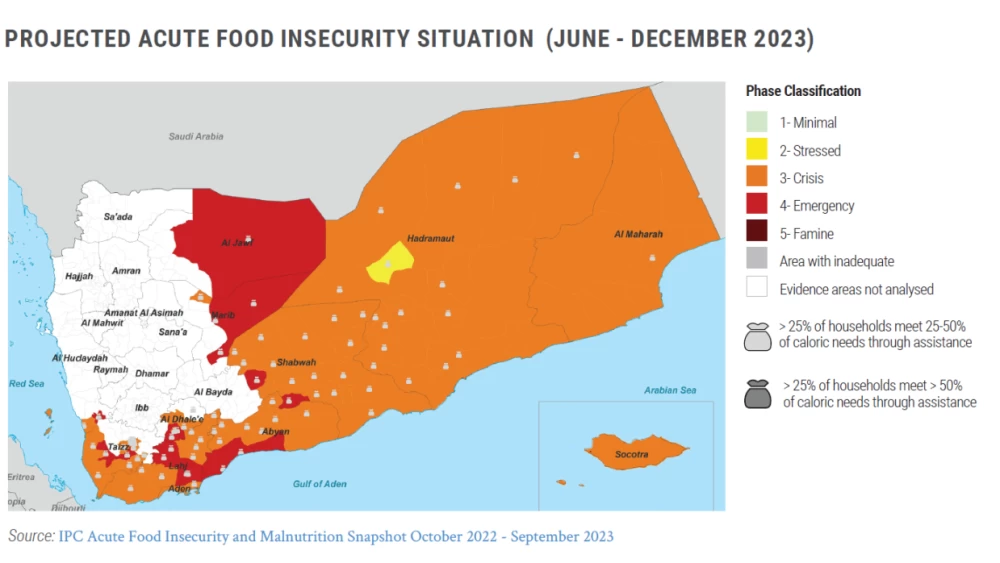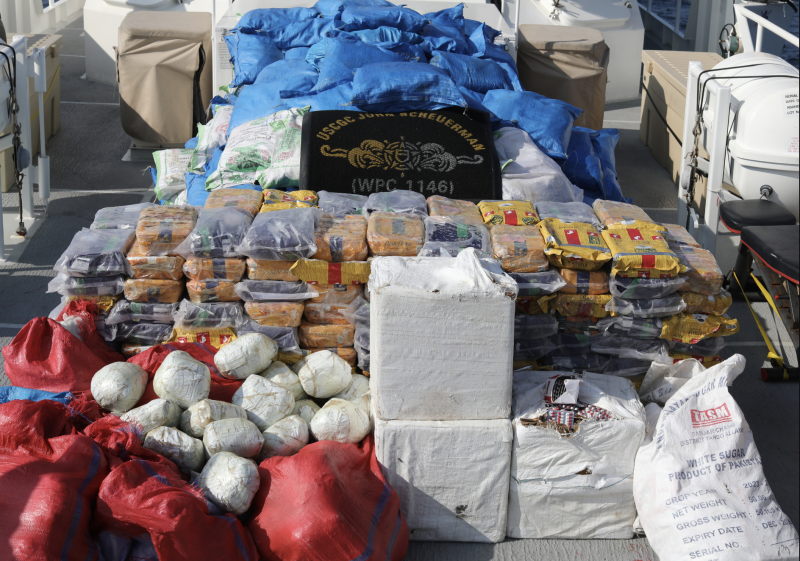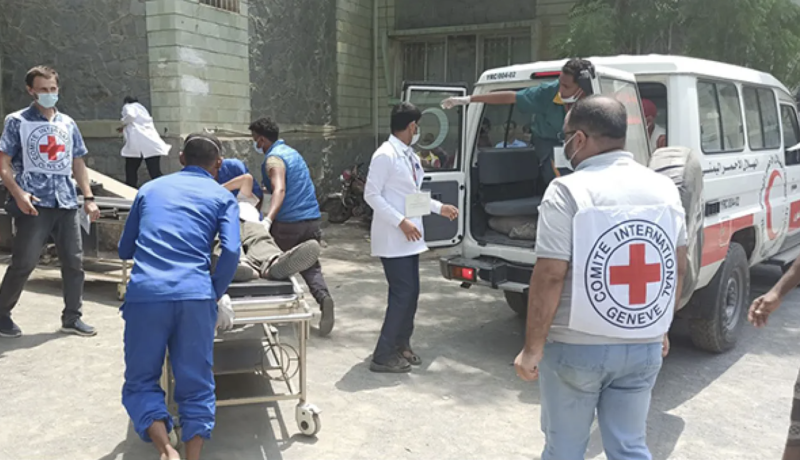Food Insecurity and Malnutrition in Yemen: Alarming Reality


Yemen continues to grapple with food insecurity, which has been exacerbated by conflict and induced economic collapse. Despite some progress, the current situation remains dire. According to the latest Integrated Food Security Phase Classification (IPC) partial analysis, the number of people facing severe acute food insecurity remains high, with 3.2 million people in IPC Phase 3 or above (Crisis and Emergency) between January and May 2023 in areas under the control of the Government of Yemen (GoY). This represents a 23 per cent reduction compared to the previous quarter but is still alarming.
Furthermore, the situation is projected to worsen from June through December 2023, with the number of people in IPC Phase 3 or above expected to increase by 20 percent (638,500 additional people). This will bring the total number of people facing severe acute food insecurity to 3.9 million in GoY-controlled areas, approximately 41 per cent of the population. The main drivers of this deterioration include a projected 20 per cent shortfall in humanitarian assistance, an anticipated increase in food and fuel prices to about 30 pe recent above the average levels, and a continuation of conflict in frontline districts.
Most analyzed districts (102 out of 118) are in IPC Phase 3 and above (3 districts in IPC Phase 4 and 99 districts in IPC Phase 3) from January - May. Thirteen districts are expected to shift from IPC Phase 3 to Phase 4, while 15 districts move from IPC Phase 2 (Stress) to Phase 3 from June 2023. This indicates that the food insecurity situation is becoming more severe in most districts of Yemen.
Yemen remains one of the most foodinsecure countries in the world, with the number of people facing severe acute food insecurity expected to increase in the coming months. The conflict and economic decline have severely impacted the ability of the Yemeni people to access food and essential services. Urgent action is needed to address the underlying drivers of food insecurity, including conflict, economic decline, and the shortfall in humanitarian assistance. Failure to act could result in a more severe humanitarian crisis.
Disease outbreaks, sub-optimal feeding practices, and high food insecurity is worsening an already vulnerable nutrition situation in GoY areas
The recent IPC Acute Malnutrition analysis shows acute malnutrition worsening in GoY-controlled areas. In 2023 about half a million children are projected to be acutely malnourished, including nearly 100,000 children who are likely to be severely malnourished and at higher risk of death. It is also estimated that up to a quarter million pregnant and lactating women (PLW) will be acutely malnourished. In the current analysis (Oct 2022-May 2023), a total of 12 zones are in a Serious situation (IPC AMN Phase 3) and Critical situation (IPC AMN Phase 4) compared to 10 zones in 2022. The three zones in Phase 4 include Al Hodeidah Southern Lowland, Lahj Lowland, and Ta’iz lowland.
The situation is expected to further deteriorate during the projection period June-September 2023. A total of 7 zones out of 16 are projected to be in IPC AMN Phase 4 (Critical), the remaining 9 zones in IPC AMN Phase 3 (Serious), and none in IPC AMN Phase 2 (Alert).
Malnutrition is complex and caused by a combination of factors, including food insecurity, poor food quality, measles outbreak, low immunization coverage, limited access to clean water and sanitation, and high levels of illness. The extremely high food insecurity deprives children of sufficient food, and the food quality is also affected, which means that children need to get the micronutrients they need to grow.
Poor access to clean water and sanitation makes children sick. High levels of illnesses and limited access to health care are worsening this situation. These factors have contributed to extremely high levels of stunting, which leads to a general loss due to diminished cognitive and physical development, reduced productive capacity, poor health, and an increased risk of degenerative diseases.
There is an urgent need to address all these causes simultaneously to address malnutrition. This means sustained promotion of adequate complementary feeding for children, prevention of diarrhea and other illnesses, access to clean water, proper hygiene, and health care, and strengthening outreach programs to identify children needing early help. It means growth promotion and monitoring; it means giving parents and caregivers the knowledge about what kind of food the child needs. There is an urgent need for multi-sectoral collaboration to make this shift to prevent the scenario the IPC report is projecting.
UNOCHA

Aden – The Combined Maritime Forces (CMF) announced Tuesday the seizure of a new shipment of illicit narcotics valued at more than $142 milli…

Geneva – United Nations High Commissioner for Human Rights Volker Türk has renewed his urgent appeal for the immediate and unconditional…

Geneva — The International Committee of the Red Cross (ICRC) has welcomed the preliminary agreement reached between Yemen’s warring par…